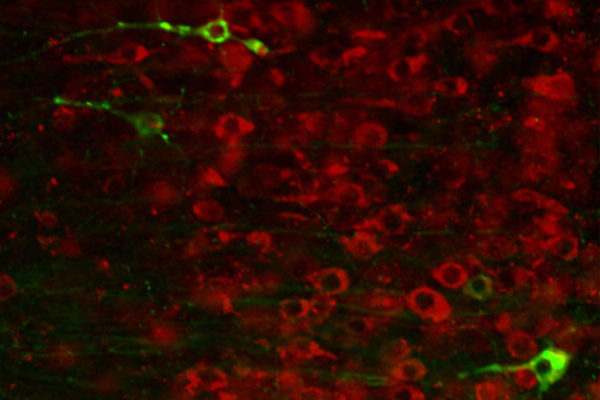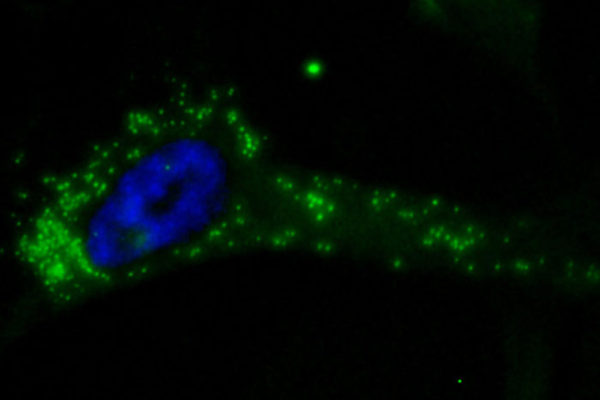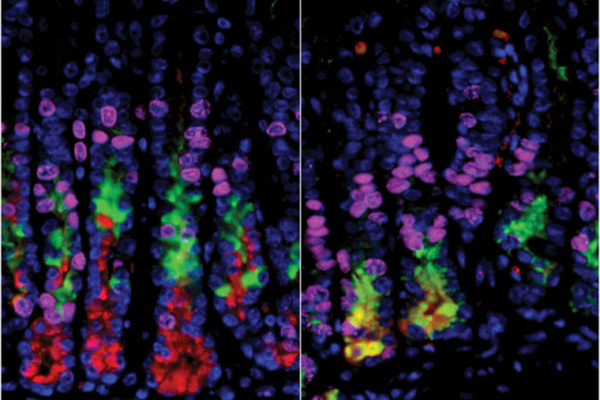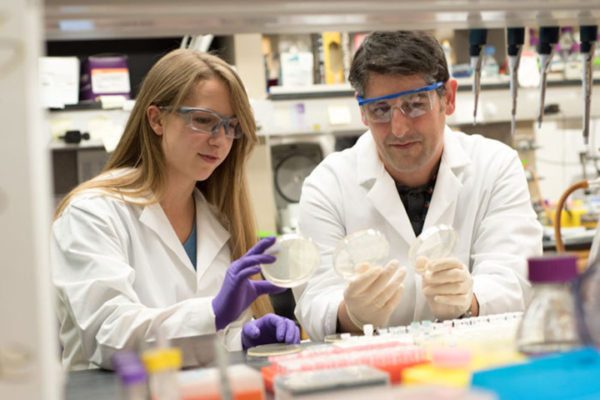Tackling aging: China forum addresses global issue
Washington University and its partner universities in Greater China came together in Shanghai on Jan. 21 for a major conference, the “Forum for Greater China: An Aging Population.” The goal of the conference was to stimulate collaborative research and conversation that will advance solutions to the challenges posed by China’s aging population.
Drug compound halts Alzheimer’s-related damage in mice
Researchers at the School of Medicine have shown that levels of tau protein can be reduced – and some of the neurological damage caused by tau even reversed – by a synthetic molecule that targets genetic instructions. The findings are important for Alzheimer’s and other neurological diseases.
Study unveils new way to starve tumors to death
School of Medicine scientists have exploited a common weak point in cancer cell metabolism, forcing tumor cells to reveal the backup fuel supply routes they rely on when this weak point is compromised. Mapping these secondary routes, the researchers also identified drugs that block them.
New public health directorship from BJC HealthCare honors Shapiro
The directorship of the Institute for Public Health at Washington University in St. Louis has been named in honor of Larry J. Shapiro, MD, former executive vice chancellor for medical affairs and dean of the School of Medicine. William G. Powderly, MD, the current director of the institute, will serve as the inaugural Larry J. Shapiro Director.
Obituary: Brian T. Collins, chief of cytopathology, 52
Brian T. Collins, MD, an associate professor of pathology and immunology at the Washington University School of Medicine in St. Louis, died Dec. 23, 2016, in his sleep at his home in Creve Coeur, Mo. He was 52.
Siteman Investment Program seeks applications
The Siteman Investment Program funds internal cancer-related research projects biannually. The aim is to help investigators produce preliminary data to pursue nationally competitive funding. The 2017 Cycle 1 is open, and researchers should express interest by March 1.
New insight into origin of stomach cancer
New research at the School of Medicine and Siteman Cancer Center have found that damage to acid-secreting cells alone doesn’t jump-start the transformation of healthy cells into precancerous cells — at least in a mouse model.
New genetic engineering technique could help design, study biological systems
A new technique will help biologists tinker with genes, whether the goal is to turn cells into tiny factories churning out medicines, modify crops to grow with limited water or study the effects of a gene on human health.
Bear Cub Challenge rebrands as LEAP, awards $250K to university teams
After 14 years as the “Bear Cub Challenge,” Washington University in St. Louis’ competition for inventors has received a new name: the LEAP Inventor Challenge (Leadership in Entrepreneurial Acceleration Program).
Board of Trustees grants faculty appointments, promotions
At the Washington University in St. Louis Board of Trustees meeting Dec. 2, several faculty members were appointed, appointed with tenure or promoted with tenure.
View More Stories









